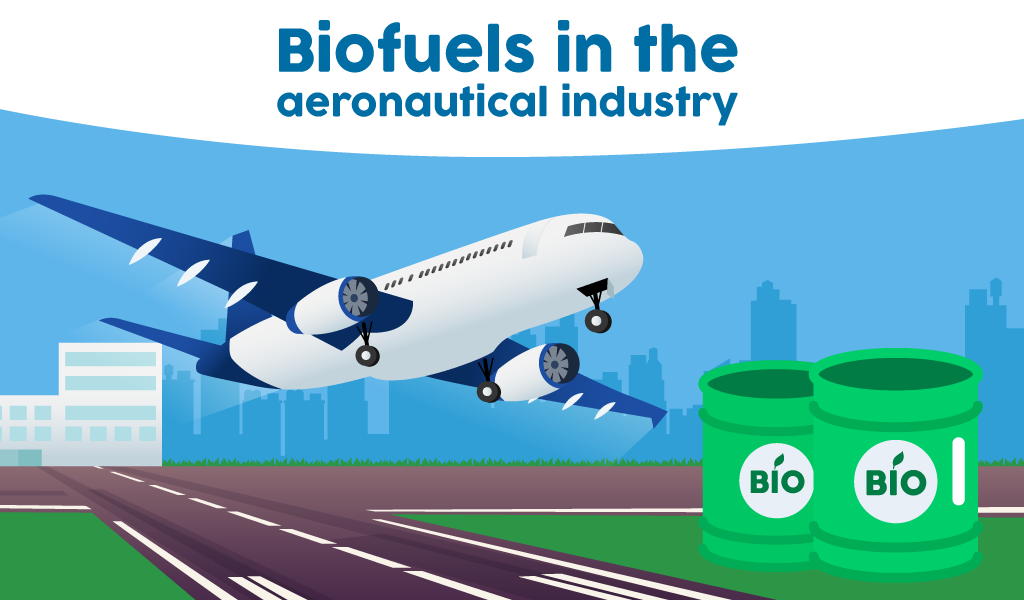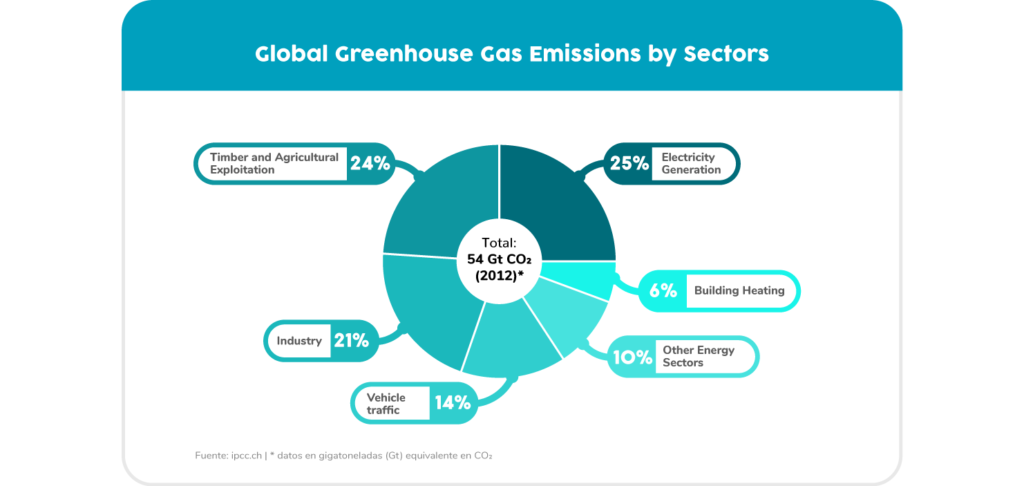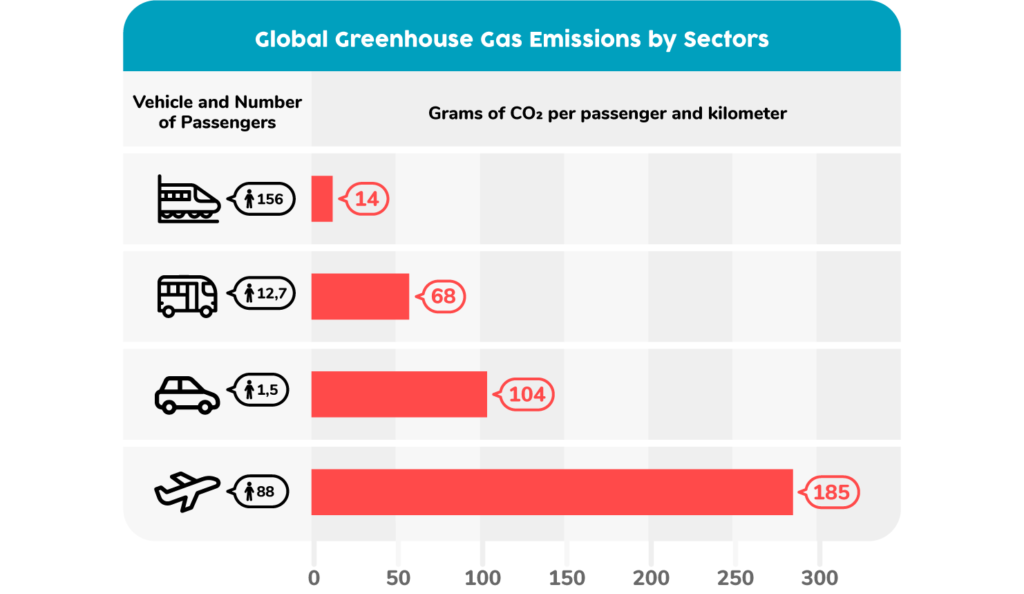
Biofuels in the aeronautical industry
By Lab4U Team
Traveling by plane is an increasingly close possibility for people. Cheaper flights, more possible destinations to visit have meant that the number of passengers has skyrocketed in recent years, and this is a trend that will continue in the future.
IATA, the International Air Transport Association, estimates that the number of passengers will double by 2037, reaching 8.2 billion a year. Aircraft manufacturer Boeing forecasts that there will be a demand for more than 42,700 new aircraft over the next 20 years, while Airbus (another aircraft manufacturer) has a similar estimate.However, civil aeronautics (passenger transport by plane) faces the challenge of making its development compatible with caring for the environment. It is estimated that around 2% of total CO2 emissions correspond to air transport, and in fact the European Union has proposed that the CO2 emissions produced by this sector decreased by 75% by 2050.


The aviation industry has been looking for ways to reduce its carbon footprint and one of the solutions that has been proposed is the use of biofuels. Let’s discuss some advantages and disadvantages of its use in this industry.
Advantages
Reduction of greenhouse gas emissions
The use of biofuels in the aviation industry can reduce greenhouse gas emissions by 50% compared to fossil fuels, according to a study by the International Civil Aviation Organization (ICAO). This reduction is due to the fact that biofuels emit less carbon dioxide during their production and combustion.
Less dependency on fossil fuels
Biofuels are produced from organic materials, such as plants and organic waste, which means they are not dependent on fossil fuels. This can help reduce the volatility of oil prices and ensure a more stable supply of fuel to the aviation industry.
Improvement of the image of the industry
The use of biofuels can improve the image of the aviation industry and its commitment to sustainability and the reduction of greenhouse gas emissions. This can be beneficial for companies seeking to appeal to consumers who are increasingly concerned about the environmental impact of their purchasing decisions.
Disadvantages
Competition with food production
One of the main problems with the use of biofuels is that they can compete with food production and therefore increase food prices. Plants used to produce biofuels could also be used to produce food, which could have a negative impact on food security in countries with high levels of poverty and malnutrition.
Land and water use
The production of biofuels requires large tracts of land and large amounts of water. This can have a negative impact on the environment and on the availability of water for other purposes, such as food production and human consumption.
High production costs
The production cost of biofuels is higher than that of fossil fuels due to the high costs of production and transformation of raw materials. This could limit its use in the aviation industry and increase the prices of airline tickets.
Food for thought:
What advantages and disadvantages do you think air travel has compared to other means of transportation?
Do you think that biofuels are a real alternative to fossil fuels in the aviation industry?
What other options could you propose to reduce CO2 emissions associated with air travel?




